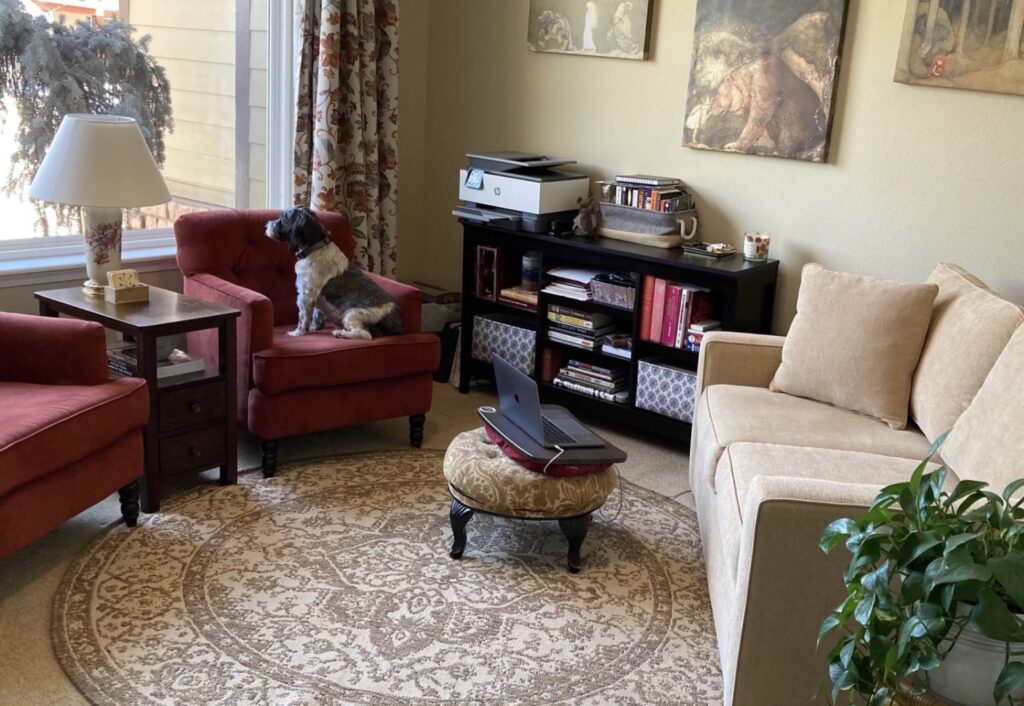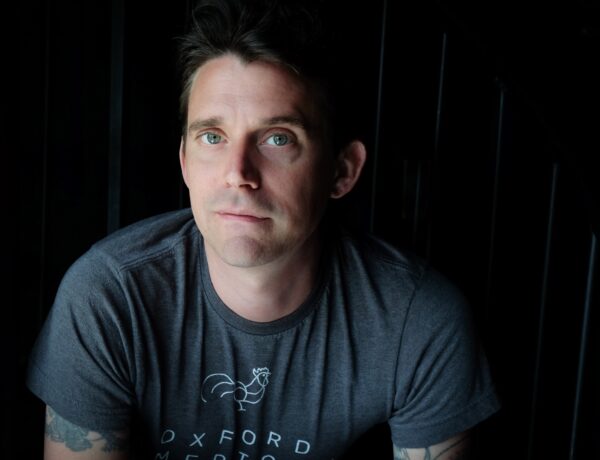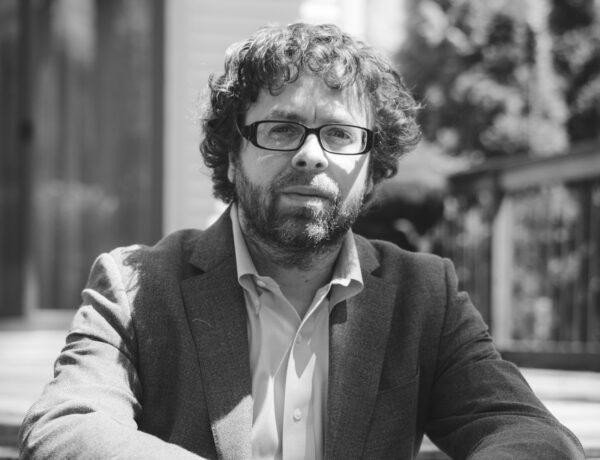Luanne G. Smith is a bestselling author, known for her witchy historical fantasy series, The Vine Witch, The Glamourist, and The Conjurer, set in Belle Époque France, and The Raven Spell and The Raven Song, a gothic witch series set in a fantasy version of Victorian London.
Her novels have topped both the Washington Post and Amazon Charts bestseller lists. Luanne resides at the base of the stunning Rocky Mountains in Colorado, where she indulges in reading, gardening, hiking, and finding the enchantment in everyday life. In her downtime, she enjoys a glass of wine at the end of the day.
In this conversation, Luanne shares with us her writing process, inspirations, and unique magic system. She discusses her love for historical fiction and fantasy, and her routine of protecting her writing time to hit her word count. We also learn about her research process and how she maintained consistency throughout her series.
Each week, we publish a new daily writing routine from a famous author. Subscribe to our newsletter so you don’t miss out!
Hi Luanne, welcome to Famous Writing Routines, great to have you here with us today! Can you tell us a bit about your background and how you got into writing?
Hello! If I rewind all the way, I’d say my love of words started in high school. I was lucky enough to have a brilliant English teacher who taught the Shakespeare class. Because his enthusiasm for the writing was so genuine, I guess I caught the bug. Words became the vehicle for my artistic expression.
I read everything and everyone, and every time I discovered an author who was a master of their craft, it just made me want to write even more. Of course, it’s not as easy as the authors make it look. It took me decades to finally write something publishable. The Vine Witch was my debut in publishing, but it was the fourth novel I’d completed. It’s the journey not the destination, right?
Your The Vine Witch series is set in Belle Époque France and your The Raven Spell series is set in a fantasy version of Victorian London. Can you share with us what draws you to these historical time periods and what kind of research do you do when creating your books?
My favorite genres to read are historical fiction and fantasy. Both draw you into worlds far away from the present. That’s what I want from a novel. I want to be carried away like a time traveler to be a witness to a character’s story in another time and place.
With The Vine Witch, I came up with the concept of a witch who makes wine first. Naturally, if you’re talking about wine, you think of France. For the characters, I knew they were going to fall into the magic vs science conflict trope, so that meant I had to choose an era when technology was on the rise and feeling superior to the “old” ways of doing things. The late Belle Époque period fit, with France hosting the Paris Exhibition at the turn of the century and all the new inventions quickly being introduced to modern life.
The Raven Spell is part of the same world of witches as The Vine Witch, but it takes place ten years earlier in 1899. I knew it would be set in London because I wanted to capitalize on the Jack the Ripper vibe and that rich Victorian setting. I also have a little bit of a gothic heart, so I just wanted to play in that dark setting for a novel or two.
As for research, I read a lot of nonfiction books before and during the writing process. For The Vine Witch I had to read so many books and websites about winemaking and witchcraft, because I didn’t know much about either before I started. Same for The Raven Spell. I read books on London poverty written in the Victoria era and, lucky for me, The Five by Hallie Rubenhold, the story of Jack the Ripper’s victims, had just come out while I was writing, so I devoured her book for the rich details of slum life.
The main character in The Vine Witch series is a vine witch who uses magic to create enchanted wines. Can you tell us more about this unique magic system you created and what inspired you to write about it?
The idea for a witch who makes wine came from a documentary about French winemaking: A Year in Burgundy. I could see the relationship between certain winemakers and the plants they tended. It was almost spiritual the way they felt about the soil, the grapes, and the effect of the moon in the process.
I simply took that reverence for nature and paired it up with modern wicca teachings. And if there could be wine witches, why not beer and pastry witches too? I’ve tried to carry that same logic through with all the books. Each witch tends to specialize in a different type of magic, depending on their individual talents and temperaments.
In The Raven Spell series, you delve into the world of gothic witch magic. What was it like writing in this dark and eerie world and what kind of themes and messages did you want to convey to your readers through this series?
As I said, I’ve always had a gothic heart. I don’t enjoy horror or graphic violence, but I am drawn to the shadows, the moon, ravens, all that stuff. The story and setting for The Raven Spell came about from a pair of images I saw on Twitter. The first was of a pair of ravens touching heads, and the next a black and white photo of two women dressed in long black coats.
The sisters’ names immediately popped into my head and the idea that they’re shapeshifters. But the weird thing is, the impetus for the story, the part about the stolen memories, was inspired by my mother’s Alzheimer’s disease and watching her memories be stolen in the night by some sort of mind thief. So, I suppose Victorian witches clad in black shawls and sucking memories out of people’s minds is how this gothic heart processed that experience.
Do you struggle to stay focused while writing? You’re not alone! That’s why Famous Writing Routines recommends Freedom – the ultimate app and website blocker for Mac, Windows, Android, iOS, and Chrome. With over 2.5 million users, Freedom helps writers stay on task and avoid distractions. Get started for free today and reclaim your productivity!
Writing a series can be challenging, what was your writing process like for The Vine Witch series and The Raven Spell series? How did you keep track of all the details and maintain consistency throughout the series?
The Vine Witch was written as a stand-alone novel. I had no intention of writing a series, but then the publisher asked for two more books, as they often do in fantasy. I had to scramble for a storyline that would not only make two more stand-alone books but would also have an overarching story to tie all three books together. And I was only given six months to write each book! It was a challenge, but I had so much fun writing those books, and in the end, I think they hang together pretty well.
Can you tell us about your writing routine? What does a typical day look like for you?
I’ve become a fierce protector of my writing time. The mornings are when I do all the non-writer stuff, but after lunch, while my dog takes his nap, I sit down to write, and usually stay at it for about three hours. If something comes up and I don’t get my words done in the afternoon (distractions!), I’ll go back to work in the evening and finish up.
I’ve been fortunate that all my books have been written under contract, but that means I frequently have quick deadlines that must be met. I’m naturally a slow writer and a pantser, so it’s imperative I follow the same routine every day to hit my word count, even if it means staying up late to get it done sometimes.
If you could have a conversation with any author throughout history about their writing routine and creative process, who would that person be?
Cliché, I know, but I’d love to sit down with William Shakespeare in the Globe theater and just listen to him rattle on about his story ideas and thoughts on his fellow humans.
I’d love to know about the books you’re reading at the moment. What have been some of your favorite recent reads?
Ah, I just picked up Killers of a Certain Age by Deanna Raybourn. I wish I’d thought up the idea first. I also just read Spare, Prince Harry’s book. I wanted to read it for myself and thought it was brilliantly done. Both of these books are outside of my normal preferred genres, but it’s good for writers to be omnivorous readers.
What does your current writing workspace look like?
I am NOT a desk person. I like a nice soft chair or sofa to curl up in, my trusty laptop, and a hot cup of chamomile tea in easy reach. And bookshelves with lots of pretty books to stare at when I’m stumped.

Affiliate disclaimer: Some links on this website are affiliate links. We may earn a small commission if you make a purchase through these links, but only promote products we truly believe in. We disclose affiliate links and give honest reviews.



No Comments